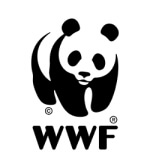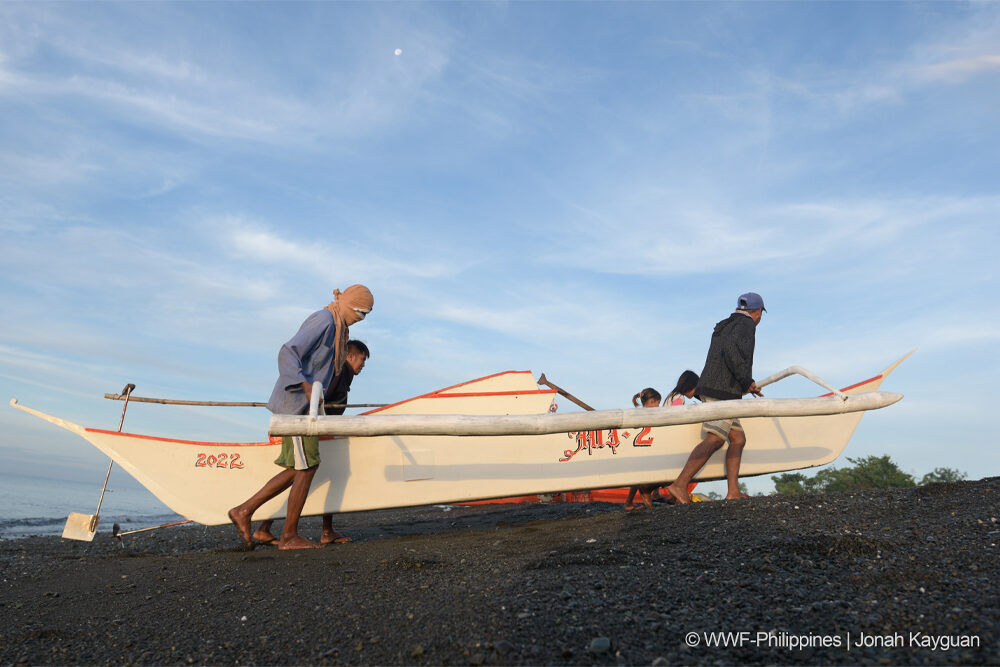Following the launch of Project Buhay, a World Wide Fund for Nature (WWF) Philippines initiative funded through the European Union’s SWITCH-Asia Programme, a Comprehensive Ecological and Economic Social Accounting Matrix (CEESAM) analysis was conducted across three project sites in Occidental Mindoro – the municipalities of Mamburao, Rizal, and Sablayan. Project Buhay aims to help tuna fishers earn more by improving the quality of their catch, reducing post-harvest fish losses, and identifying alternative sources of income through various interventions.
In support of these initiatives, the results of the CEESAM analysis will provide crucial context of the economic and ecological status of these sites, as well as spotlight intervention opportunities.
Project Buhay CEESAM Consultant Mikko Diaz highlighted agriculture as the main contributor to the local economies of the three project sites. Crop farmers were the largest earners in Rizal, while those employed in fisheries had the largest incomes in Mamburao and Sablayan. Despite high average incomes, however, there is still a large disparity between how much boat-owning fishermen were making compared to those hired as crewmates. For most crewmates and non-boat owners alike, fishing remains a non-sustainable source of income. With fishing being a seasonal activity, most fishermen work as blue-collar laborers to make ends meet.
Fish stocks in municipal waters have also decreased according to interviews with fishermen in the target sites. This has forced fishers to venture further out to sea where they brave tougher weather conditions and spend more for logistical needs. Rampant commercial fishing and lack of law enforcement are frequently cited causes for dwindling fish stocks. The study also highlighted ecological issues in the three target sites. A combination of land utilization for crops, as well as regulated fishing, have contributed to a negative ecological balance in both Mamburao and Rizal. Sablaya, meanwhile, manages to maintain a positive balance due to its large biocapacity. Overall, the natural resources of fisheries in Occidental Mindoro are being used faster than they can be replenished.
In recent years, as global economies suffer from the strain of inflation and geopolitical tensions, market prices for basic agricultural equipment have risen, while the selling price for products like yellowfin tuna has failed to catch up. In addition, farmers and fisherfolks lack the capital to either support or jumpstart their ventures, forcing many to go into debt. This borrowing culture has resulted in unsustainable and vicious loan cycles that force fishers to sell their catch for below-market prices just to pay off loans. Institutional support for these loans comes from various cooperatives and people’s organizations who act as de facto providers of credit, but as more people default on their loans, so too does it become harder to apply for one.
While overall crop yields and fish catch show a steady rise over the years, issues such as lack of infrastructure, predatory pricing, and unstable markets persist. Farmers and fisherfolks remain at the mercy of volatile market prices and lowballing from major buyers and distributors. Unsold surplus in the sector is an enduring issue due to a distinct lack of marketing and infrastructure to take advantage of such surplus stocks.
Despite considerable challenges, however, opportunities abound. Modernizing the agriculture industry and its sub-sectors is one such initiative to uplift the community and make livelihoods more sustainable. Strengthening links between financial institutions and stakeholders can also facilitate access to better lines of credit, sources of capital, and contingency funds. Training on proper record-keeping practices, closer coordination between people’s organizations on the ground, and inciting fishers and farmers to think of themselves as business entities also provide an opportunity to integrate them deeper into the harvest-to-table food chain thereby giving agency to their needs.
Towards this end, the CEESAM analysis results will provide solid data-driven foundations for boosting local economies in Occidental Mindoro. Through this, sustainable industries such as ecotourism, aquaculture, and aquasilviculture (mangrove-based fisheries development) interventions are promoted. These combined, are part of WWF-Philippines’ mission to minimize negative environmental impacts in and around Mindoro Strait. In bridging financial gaps, WWF-Philippines can help the established farmer and fisherfolk cooperatives to strengthen their connections with institutional customers thereby opening up a path for stable market pricing and distribution. Similarly, a development planning tool will be provided to participating Local Government Units in Occidental Mindoro with the aim to share simple and advanced economic modeling strategies. Through this, they can guide policy-based approaches as well as promote local and outside investment thus paving the way for long-term economic development.
WWF-PH’s Project Buhay program will work and build on the results of the CEESAM analysis in order to continue facilitating community improvement initiatives in Occidental Mindoro and promote sustainable livelihoods that will benefit both the stakeholders and the environment.






